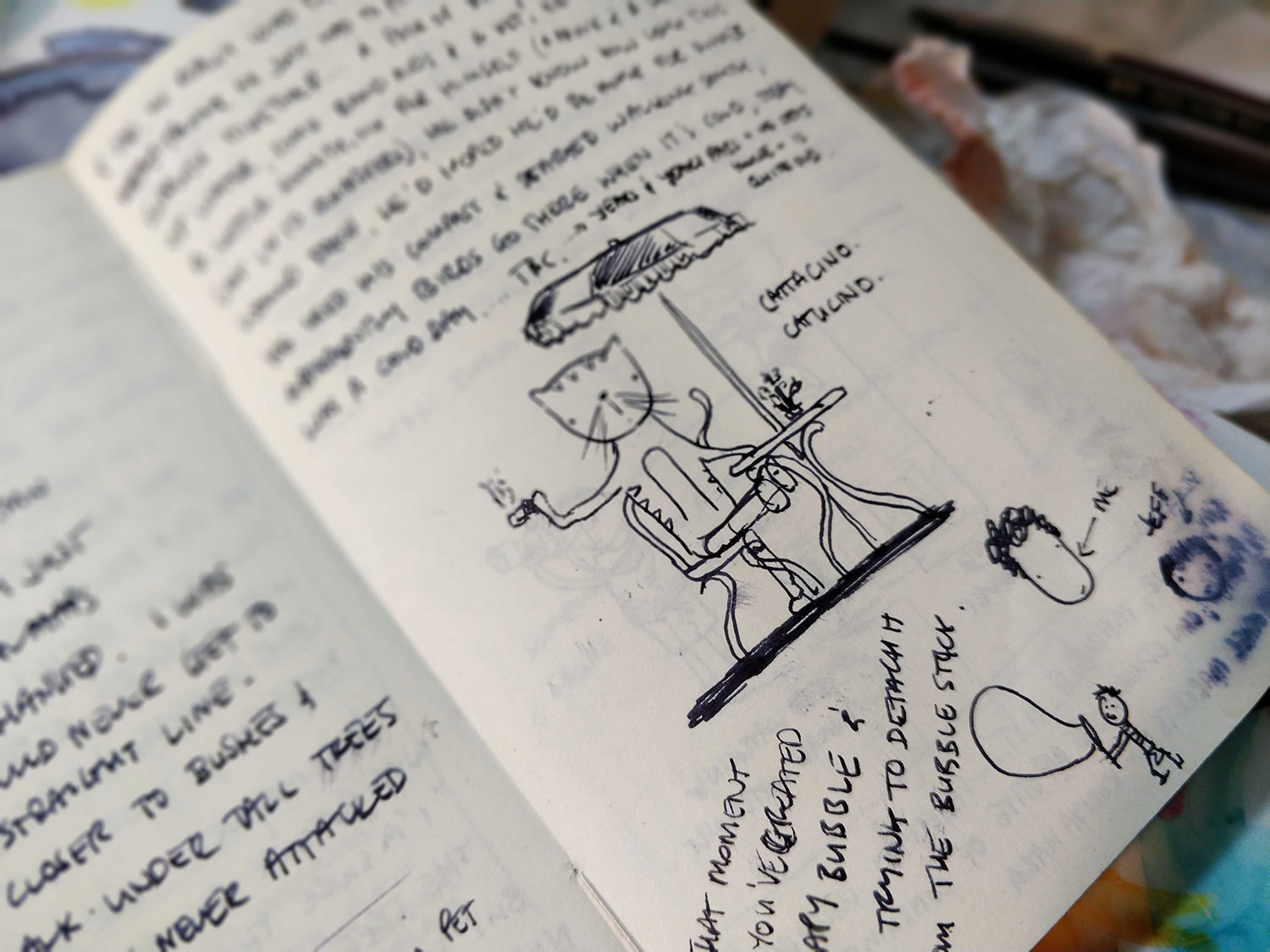I keep a small pocket journal on me at all times to capture the random, unintentional thoughts that pop into my head on a day-to-day basis. I’ve developed this habit because I never know when these ideas will float to the surface of my consciousness. I’ve lost good ideas by not being prepared in this way.

I used to walk to my nearest train station to get to work. It’s a 3.5km walk, and it took me about half an hour. As I got busier with life, I thought I could save time by cycling to the train station instead. And yes, it did save time. It cut my half-hour walk down to a 15-minute ride. In a return trip, that saved me half an hour per day. I was happy. I had optimised!
I rode the bike for many months before I noticed that I wasn’t getting through as many pocket journal pages as usual. I had been using the same one for much longer than I usually would. Those thoughts and ideas I had come to take for granted and planned for began to dry up.
So, I left the bike at home and went back to walking. Sure enough, after a little while, the thoughts and ideas returned. They came back with a flood.
Ways to plan boredom
Planned boredom seems like an oxymoron, but there’s research to prove that it works. My mind makes the most interesting connections when it’s not focussed on anything in particular – when it knows it’s in a safe place, with no immediate threat, and it’s allowed to wander. It has space to invent. To make connections that I could not make intentionally.
When I’m on the bike, my mind is continuously in survival mode. It’s monitoring traffic, my balance, speed, and pedestrians. There’s no room for expansive or accidental thought. Riding a bike isn’t a time for serendipity, it’s a time for focus.
Our devices are robbing us of boredom, so we have to fight back
Planning unfocussed time into my day has become critical to my creative practice. It’s the wellspring of my creative projects. But with technology designed to fill every gap in our day, we have to try harder than ever to make this time for ourselves. Here are a few ways I know that have a pretty good strike rate in getting ideas into my notebook:
- My walk to work (or a walk anywhere). Mindless, repetitive tasks like this ensure the blood is moving around the body, feeding oxygen to all my important bits, namely, my brain and heart.
- Shower time. Shower time works less reliably for me these days, but it’s still a safe place where my brain can let my body go into an auto mode so my mind can wander.
- Laying on the floor with a sketchbook. Kids do this naturally, and I only started doing this as an adult again, but boy is it powerful. The theory would say that by laying flat, you’re distributing the blood around your body more evenly and so your posture alone is gearing you up to be in a more receptive and powerful space for idea generation. When you add a sketchbook into that, boom, the magic happens.
- Staring out of a train window (instead of staring at Facebook or even listening to music). A fairly self-explanatory one but and it’s SO hard to resist the temptation to listen to another fascinating podcast, right?
Integrating these moments in your life can be difficult to prioritise. Do I need to scroll through Facebook or Instagram right now? Or could I spend that time setting my brain up to have another idea, or make a new connection that no one has ever made before?
‘Avoiding boredom’ is something that we’re trained to achieve in a bid to be ‘more productive’. But it’s not until you permit yourself to be bored again that you truly see the power of it. At least, that’s the way it’s worked for me.
